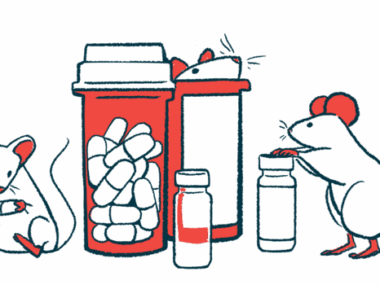As a Caregiver, Going Down the ‘What If’ Rabbit Hole Isn’t Helpful
Written by |

My mind can easily spiral into anxiety if I let it.
I got selected for jury duty. Along with my request to be excused because I’m my husband’s caregiver, I included doctors’ notes stating that my husband, Todd, is paralyzed.
Apparently, that wasn’t enough, because I received a second round of paperwork in the mail. I returned it, again stating that I’m unable to serve because I’m my husband’s caregiver.
I haven’t heard back, so I wait and wonder. Will the judge excuse me? What will I do if I am called and can’t find a caregiver for Todd? Would I have to take him with me? That would be a difficult undertaking for both of us, and risky during the pandemic.
And what if Todd gets COVID-19? What if I get it? Who will take care of Todd? What if caregivers don’t want to risk helping us while we’re sick?
What if? What if? What if?
We’ve been living with Todd’s ALS for a decade now, and I need to keep learning the same lessons.
I couldn’t sleep when Todd was first diagnosed, consumed by anxiety as I imagined our future. I met with a counselor who helped me focus on today. Worry was affecting me physically, and dwelling on all the “what ifs” wasn’t helpful.
I won’t find satisfactory answers by going down the “what if” rabbit hole. It only leads to more questions, anxiety, and a world of fear.
I saw this play out in a conversation with my 3-year-old son years ago.
“What if our house burns down?” he asked as I tucked him into bed.
“Then we would live with Neenee and Papa while we rebuild our house.”
“What if their house burns down?” he asked, even more concerned.
“Then we’ll find another house.”
“What if all the houses in Michigan burn down?”
I shifted course. “Isaac, there are things we can do to help our house not catch on fire. We don’t play with matches. We don’t leave candles burning unattended. We don’t leave papers by the stove. If something happens, God will give us the strength to deal with it then.”
That response reassured him, and we said our goodnights.
We need to distinguish between what we can control and what is out of our control.
I did what I could do for now to get excused from jury duty. What comes next is out of my control, but whatever happens, I’ll have to deal with it then.
And we are taking precautions to stay healthy, trying to minimize risk while meeting our needs. If someone in our household gets the coronavirus, we’ll deal with it then.
There are many other difficult scenarios I could imagine in the midst of political unrest, a flailing economy, a pandemic, and terminal illness.
Worse things happen every day for people who have ALS and their loved ones — sleep deprivation, trauma from falling, breathing difficulties, choking, and dying. We’ve already experienced all but one of those, and the last one is inevitable.
I don’t want to be naïve about the possibilities, but I can’t let worry ruin better days. Today is hard, but I make it harder when I borrow trouble from tomorrow.
We prepare the best we can, but then we let it go and deal with the difficulties when they come.
***
Note: ALS News Today is strictly a news and information website about the disease. It does not provide medical advice, diagnosis, or treatment. This content is not intended to be a substitute for professional medical advice, diagnosis, or treatment. Always seek the advice of your physician or other qualified health provider with any questions you may have regarding a medical condition. Never disregard professional medical advice or delay in seeking it because of something you have read on this website. The opinions expressed in this column are not those of ALS News Today or its parent company, Bionews, and are intended to spark discussion about issues pertaining to ALS.






Anne
Today is hard but I make it harder... truer words especially for ALS caregivers. Thank you for tour insight. Your honesty. It is holy.
Kristin Neva
Anne, thank you for commenting!
Candace Trimble
I too, find myself chasing the "what if" rabbit down the trail. Your essay gave me a moments pause to realize that once we have done our best to prepare, all we can do is live a well as we can with our changing realities. Thanks for the thoughtful advice.
Kristin Neva
Thanks for commenting Candace!